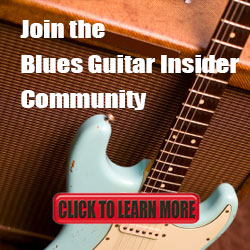We all know that the music business has changed big-time in the last 5 years. Albums and record companies have been replaced by digital downloads. If you want to sell your music, or promote your band, you pretty much have to do it yourself.
 Now this has been coming for a long time. As “labels” began to disappear, musicians had to start recording their own music and producing their own CDs. And then they had to figure out ways to distribute their music. There was no rules and certainly no manual to tell you how to do it. You figured it out on your own.
Now this has been coming for a long time. As “labels” began to disappear, musicians had to start recording their own music and producing their own CDs. And then they had to figure out ways to distribute their music. There was no rules and certainly no manual to tell you how to do it. You figured it out on your own.
Of course there always have been the “haves” and the “have-nots” in the music business. Back in the 60’s, 70’s, and 80’s the goal was to get a record contract and then get your music played on the radio. Usually the record company did all the work so everyone wanted to get “signed” to a record company. It really was the only path to success. If you got signed then you were a “have.” And all of the thousands and thousands of bands out there wanted to “have” that success.
Of course, there were many small labels in years past. Sun Records and it’s owner/producer Sam Phillips, was just a small little label out of Memphis Tennessee until it recorded a young Elvis Presley and caught the brass ring. Of course, Presley later went to RCA Records in 1955, when RCA purchased the recording contract from Sun Records for the then astronomical sum of $35,000. Elvis would become RCA’s biggest selling recording artist. His first gold record was Heartbreak Hotel, recorded in January 1956. He became the classic success story in Rock and Roll. And because the Baby Boomer teens were buying so many records, there was plenty of money, and plenty of demand for more bands. So the the record labels were in a buying mood.
A nd back then it really was possible for a small local or regional band to “make it” if they had a good song. And if you ever saw the movie, That Thing You Do, where a small local band records themselves, is “discovered” by a local “producer,” and then that producer promotes them to a big-time record label, and they become famous… well that’s the path you could take back in those days.
nd back then it really was possible for a small local or regional band to “make it” if they had a good song. And if you ever saw the movie, That Thing You Do, where a small local band records themselves, is “discovered” by a local “producer,” and then that producer promotes them to a big-time record label, and they become famous… well that’s the path you could take back in those days.
But things have changed. Record companies don’t look for small, local bands. They seldom sign new artists unless they’ve already established themselves somehow.
And the fact is, there’s really very little money selling your own music today, even if you can get it on iTunes or Spotify or CD Baby, or wherever. That ship has pretty much sailed as a way to make big money. But you can create a small income stream selling CD’s… usually at gigs.
But you have to build up a following and an online presence. And you must have your “ducks in a row.”
Today in order to make money you must have these ducks inline (and online).
- Play concerts, clubs, or shows whenever you can. Then leverage those shows to…
- Sell your own CD(s)
- Have your own website you can send people to from your “touchpoints”
- Build up a following from gigs and online promotion
- Develop am email list of as many fans as possible. Tell people about it at gigs and all online locations
- Sell merch at your shows
- Make music videos of your live shows and use them to promote yourself on Facebook, YouTube, and wherever
All this adds up to your Fan Funnel for turning people you meet (in person and online) into stark, raving fans that want to come to shows and buy your stuff. You must have a call to action in as many places as possible to move people into your Fan Funnel so you can leverage that contact
Your Online Presence
It’s an online world. The more places you can be found online, the more “touchpoints” you have where you can connect with your potential fans. So you need to have a web presence in as many places as possible. This includes…
- Your website (duh)
- YouTube.com
- TicTok
- Twitter (X)
- Reverb Nation
- Music Forums
On this locations you can put your songs, your videos and you can send people into your fan funnel on your website.
And who knows what other online locations will pop-up in the next few years. Most of these sites didn’t exist 10 years ago (most not even 5 years).
So you’ve got to be ready to adapt… and change with the times.
But it is clear. It’s become a digital world. You must have mp3 versions of songs to distribute and videos that let people know what you are about.
After all, that’s what this website is really about. I use it to drive traffic to my band website here. So this is just one of my many touchpoints for turning strangers into fans.
But of Course The Most Important Thing Still Is…
You’ve got to make good music. This has always been true no matter how the music business works. If your music can’t compete, stay home and rehearse and practice until it is good enough. As some politician said. You can’t put lipstick on a pig.
Music Marketing Courses and Books
Here’s some courses and books I’ve found to help you with your music marketing.
Music Marketing for DIY Musicians
There has never been a greater need for practical DIY marketing advice from a musician who has been there and succeeded than now – at a time when new technologies make it more possible than ever for musicians to attract attention independently and leverage their own careers, and record industry professionals look exclusively for developed artists who are already successful.
Written by a professional musician for other musicians, Music Marketing for the DIY Musician is a proactive, practical, step-by-step guide to producing a fully integrated, customized, low-budget plan of attack for artists marketing their own music. In a conversational tone, it reveals a systematic business approach employing the same tools and techniques used by innovative top companies, while always encouraging musicians to stay true to their artistic integrity. It’s the perfect blend of left-brain and right-brain marketing.
 Music Marketing : Press, Promotion, Distribution and Retail
Music Marketing : Press, Promotion, Distribution and Retail
(Berklee Press). Berklee expert speaks on how to market and distribute your songs and group. Sell more music! Learn the most effective marketing strategies available to musicians, leveraging the important changes and opportunities that the digital age has brought to music marketing. This multifaceted and integrated approach will help you to develop an effective worldwide marketing strategy. Step by step, you will develop an active marketing plan and timeline tailored to your unique strengths and budget. You will learn to time your marketing campaign effectively, publicize your music to traditional print outlets and emerging online opportunities, understand the current opportunities for online, satellite, and terrestrial radio play as well as navigate various retail and distribution options, both at brick-and-mortar and online options, such as iTunes, Rhapsody, and other services.
 In The Key of Success – Marketing Course
In The Key of Success – Marketing Course
Cheryl B. Engelhardt teaches courses on key music marketing strategies like email marketing, video creation, online promotion and much more.
Her proposition is…
“Sign up to access The Musician’s Success Cycle, a framework to reduce overwhelm while increasing productivity, fans, and income.
Created by GRAMMY®-Nominated musician & music career coach Cheryl B. Engelhardt. In two easy (and free!) steps, you’ll ll have access to your very own Success Portal, starting with a concise but powerful 5-phase series of short videos that will blow your mind and transform how you work at your career. Are you ready?”
It is free to get started but the advanced stuff will cost… but I hear it’s worth it.
» Click Here for a Free Signup




